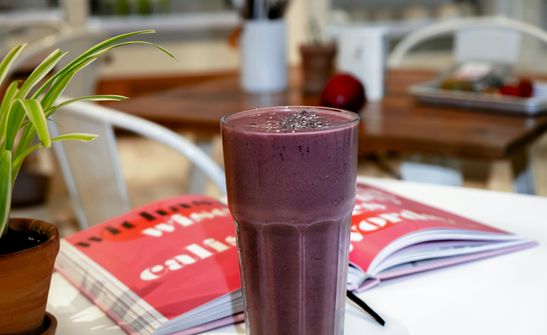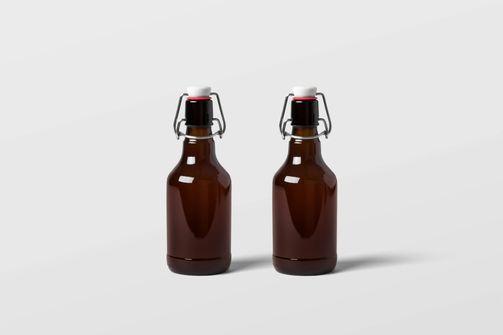
Why Electrolytes Are Essential for Active Women: A Guide to Natural Replenishment
When it comes to staying hydrated, electrolytes are the unsung heroes that keep your body balanced and energized, especially for active women. Whether...

Hey there, fabulous ladies! Today, we’re diving deep into a topic that’s both incredibly important and often a bit perplexing: the [world of dietary supplements](/supplements-for-womens-health). With so many of us reaching for that bottle of vitamins or minerals in hopes of boosting our health, it’s crucial to chat about which of these supplements might not play well together. Because, just like in any good relationship, harmony is key, especially when it comes to supporting our unique health concerns as women.
Now, before we get into the nitty-gritty, let’s lay down some groundwork. Supplements, ranging from vitamins and minerals to herbs and omega-3 fatty acids, have become our go-to allies for filling nutritional gaps, enhancing our energy, and just generally helping us feel like the goddesses we are. But (and it’s a big but), not all supplements should be mixed without a second thought.
Why, you ask? Well, certain combinations can downright cancel each other out or, worse, lead to unwanted side effects. And that’s definitely not what we signed up for when we decided to give our health that extra oomph. So, with our well-being in mind, let’s explore some supplement combos that are better off breaking up, particularly focusing on those relevant to women’s health.
Iron and calcium are like that couple who just can’t seem to get their timing right. You see, calcium can hinder iron absorption, and since many women are already dancing on the tightrope of iron deficiency (with nearly 10% of American women being iron-deficient, according to the WHO), it’s vital to keep them apart.
note
If you’re taking both, consider scheduling them at different times of the day – iron in the morning and calcium in the evening, perhaps?
Vitamin D and magnesium share a bond that’s a tad complicated. While they’re totally into each other, with Vitamin D helping your body absorb magnesium more efficiently, they can sometimes get a bit out of balance. Too much Vitamin D without enough magnesium can lead to magnesium depletion, and nobody wants that.
Given that magnesium plays a crucial role in managing PMS symptoms and overall mood stability for women, balancing these supplements is key. To keep things smooth, make sure you’re getting enough of both, potentially through a balanced diet or by discussing supplementation with your healthcare provider.
Here’s the drama: high doses of Vitamin E can mess with Vitamin K, affecting blood clotting and heart health. It’s like Vitamin E is the villain in a soap opera, scheming behind Vitamin K’s back.
warning
For those on blood thinners or managing vitamin K deficiencies, it’s especially important to keep Vitamin E supplementation within recommended limits.
Given that heart disease is a leading cause of death for women worldwide, we’re aiming for heart health, not heartache.
St. John’s Wort is that friend who means well but sometimes causes chaos in social settings. Known for interacting with a myriad of supplements and medications (including birth control and antidepressants), it can lead to decreased effectiveness or increased side effects.
Given the crucial role birth control and mood stabilizers can play in many women’s lives, if St. John’s Wort is part of your routine, it’s crucial to have a chat with your healthcare professional about what else is on your supplement guest list.
Omega-3 fatty acids and Vitamin E can be great pals, but there’s a catch: Vitamin E might increase the risk of bleeding when taken with high doses of omega-3s. If you’re leaning towards a high omega-3 intake, keeping an eye on your Vitamin E consumption and staying within recommended doses is wise.
Since omega-3s are often sought after for their potential to alleviate menstrual pain and support mood, balancing these nutrients is particularly pertinent for women.
Now, navigating the supplement landscape doesn’t have to feel like trekking through a minefield. With some savvy strategies, like doing your homework before popping any new pill, reading labels diligently, and staggering different supplements throughout the day, you can steer clear of interactions.
And let’s not forget the invaluable role of consulting healthcare professionals. Whether it’s a doctor, a dietitian, or a pharmacist, these experts can offer personalized advice tailored to your unique health blueprint as a woman.
tip
After all, both the World Health Organization (WHO) and the Food and Drug Administration (FDA) emphasize the importance of professional guidance when it comes to dietary supplements, ensuring you’re taking them safely and effectively, with your specific health concerns in mind.
In the grand scheme of things, supplements can be fantastic allies on our journey to optimal health. But like any powerful tool, they require a bit of respect and knowledge to use correctly.
By staying informed and cautious about which supplements to combine, you’re not just avoiding potential pitfalls; you’re taking an empowered step towards nurturing your health and well-being as a woman.
So here’s to making informed choices and keeping those supplement relationships harmonious. Your body (and mind) will thank you for it!
A: Yes, iron and calcium can interfere with each other’s absorption when taken simultaneously. To avoid this, it’s advisable to schedule their intake at different times of the day, such as iron in the morning and calcium in the evening, to maximize the absorption and benefits of each mineral.
A: Excessive Vitamin D intake can lead to symptoms like nausea, vomiting, and kidney issues, while magnesium deficiency might manifest as muscle twitches, cramps, and fatigue. The most accurate way to assess your levels is to consult with a healthcare professional and possibly undergo blood tests.
A: Be vigilant for new or unusual symptoms such as gastrointestinal issues, fatigue, dizziness, or headaches. These could indicate adverse interactions between supplements. If you notice any of these symptoms, it’s important to consult with a healthcare provider.
A: St. John’s Wort can decrease the effectiveness of hormonal birth control by accelerating its metabolism, potentially leading to an increased risk of unplanned pregnancy. Always discuss the use of St. John’s Wort or any supplement with your healthcare provider to avoid unwanted interactions.
A: Professional guidance is crucial as it ensures that any supplements you take are suited to your unique health needs and goals, minimizing the risk of negative interactions with other supplements or medications. A healthcare provider can offer personalized advice based on your health history and current conditions.
A: Yes, even with a balanced diet, if you’re taking supplements for specific health reasons or life stages, it’s important to be mindful of potential interactions. Being well-informed about your supplement intake and its implications is key to maintaining your health and safety.
A: The best approach is to maintain open communication with your healthcare provider. Provide them with a complete list of all supplements and medications you’re taking to allow for a thorough assessment of potential interactions and to receive tailored advice on how to safely manage your supplement regimen.

When it comes to staying hydrated, electrolytes are the unsung heroes that keep your body balanced and energized, especially for active women. Whether...

Throughout history, cultures across the globe have embraced the healing power of beverages made from herbs, spices, and natural ingredients to promote...

Smoothies are a great way to fuel your body with essential nutrients, but adding adaptogenic herbs can take your wellness routine to the next level. A...

Herbal teas have been cherished for centuries as natural remedies for promoting overall health and well-being. For women, in particular, herbal teas c...

Fermented beverages like kombucha, kefir, and other probiotic-rich drinks are gaining popularity due to their powerful effects on gut health. These dr...